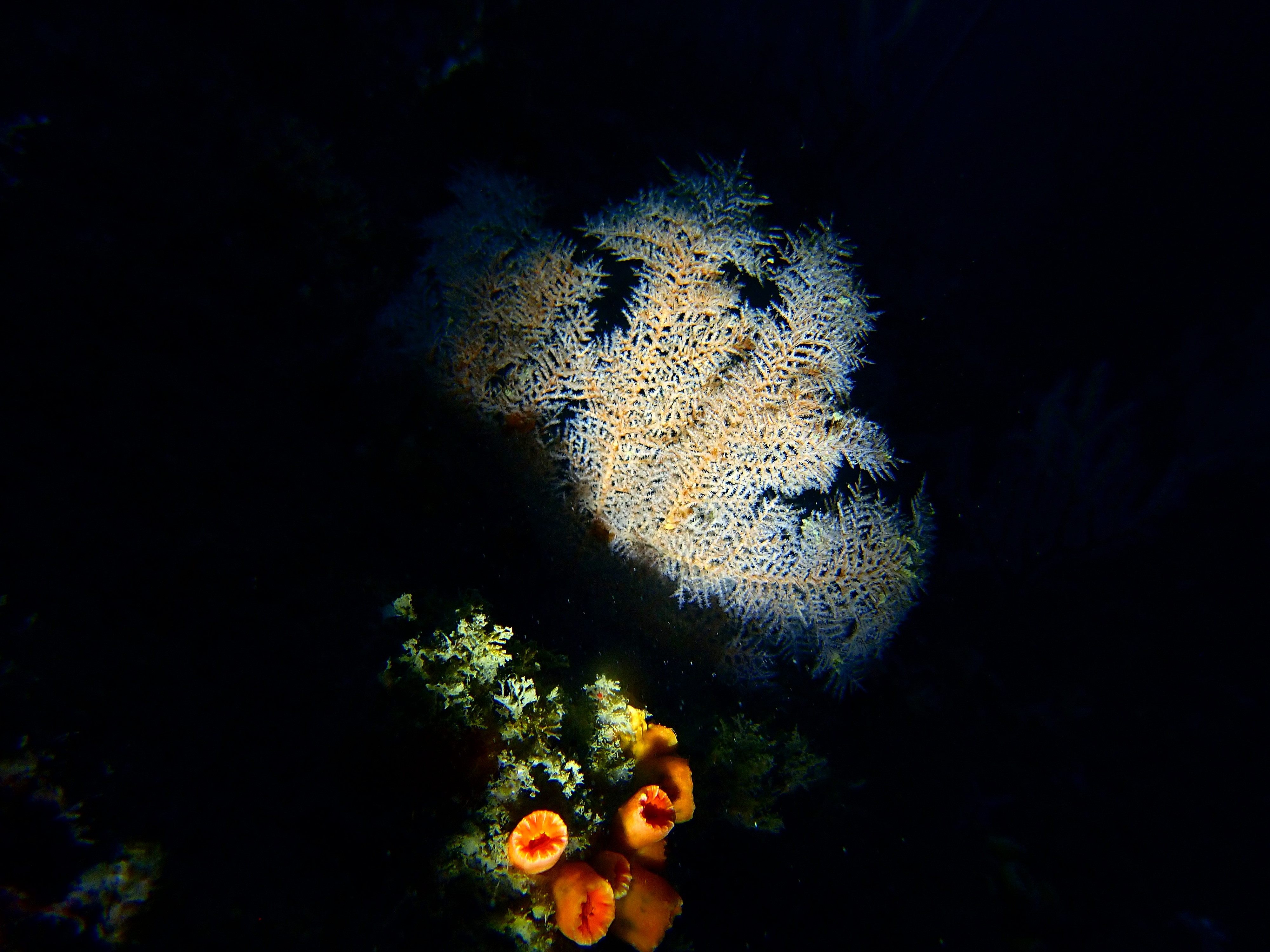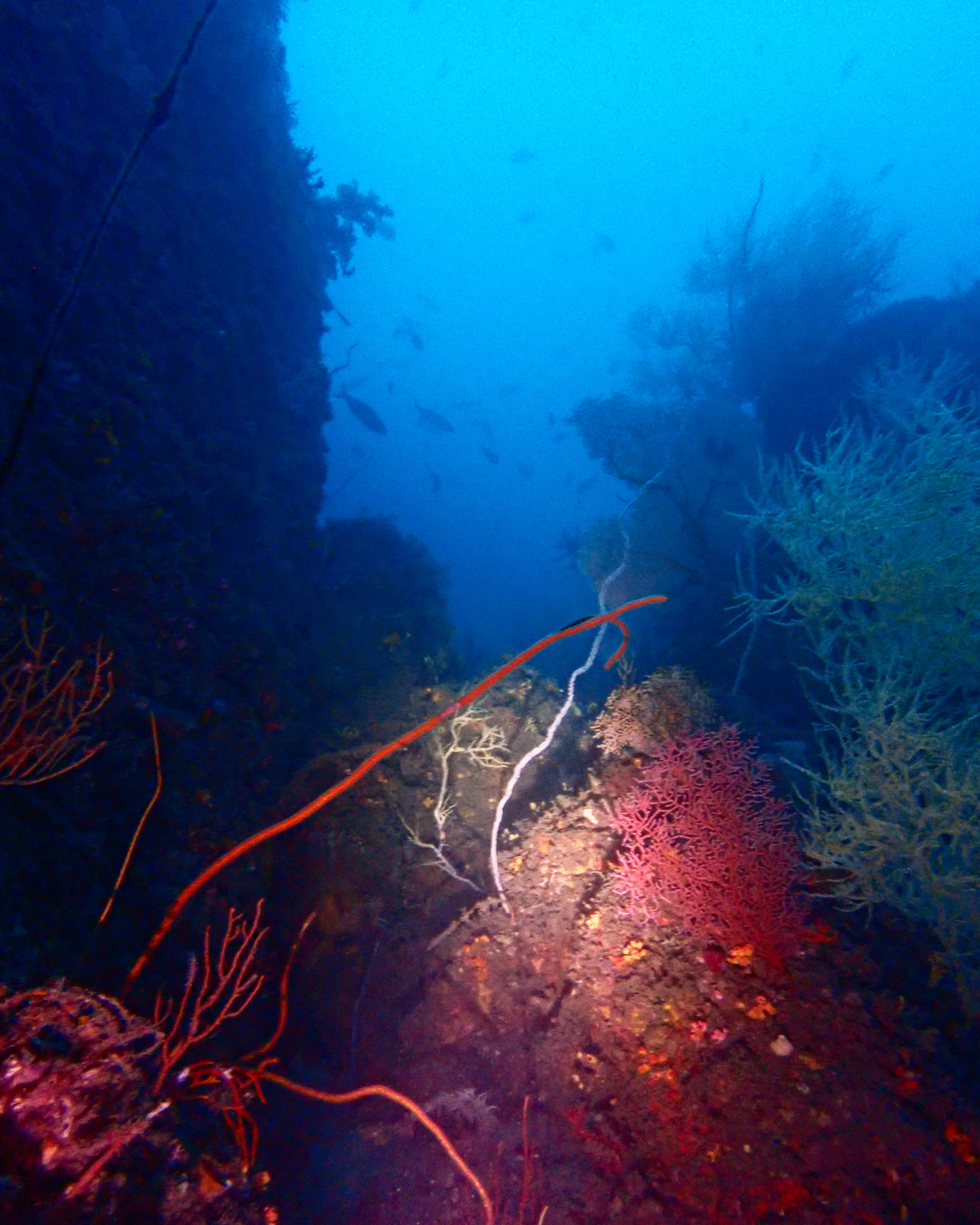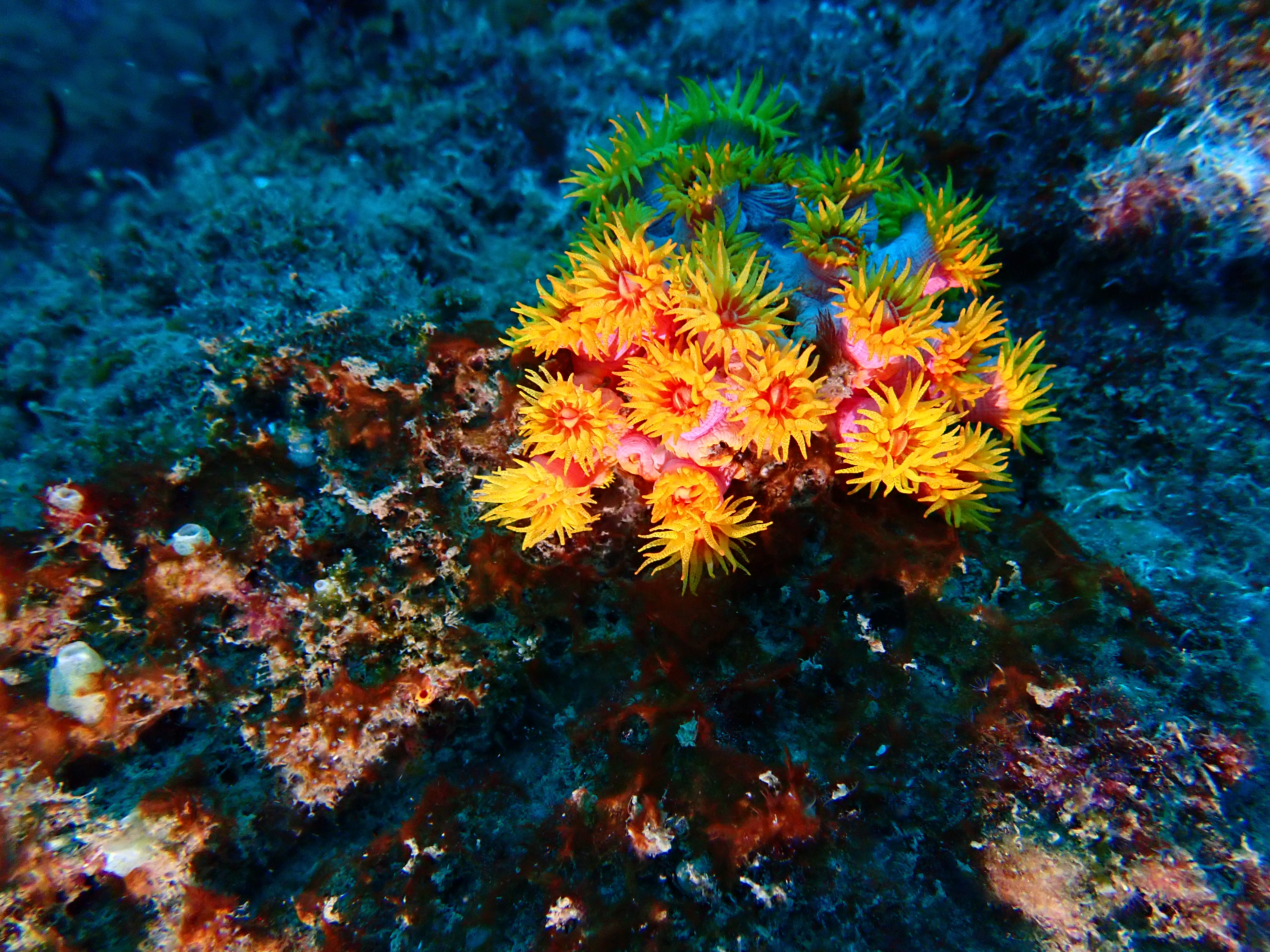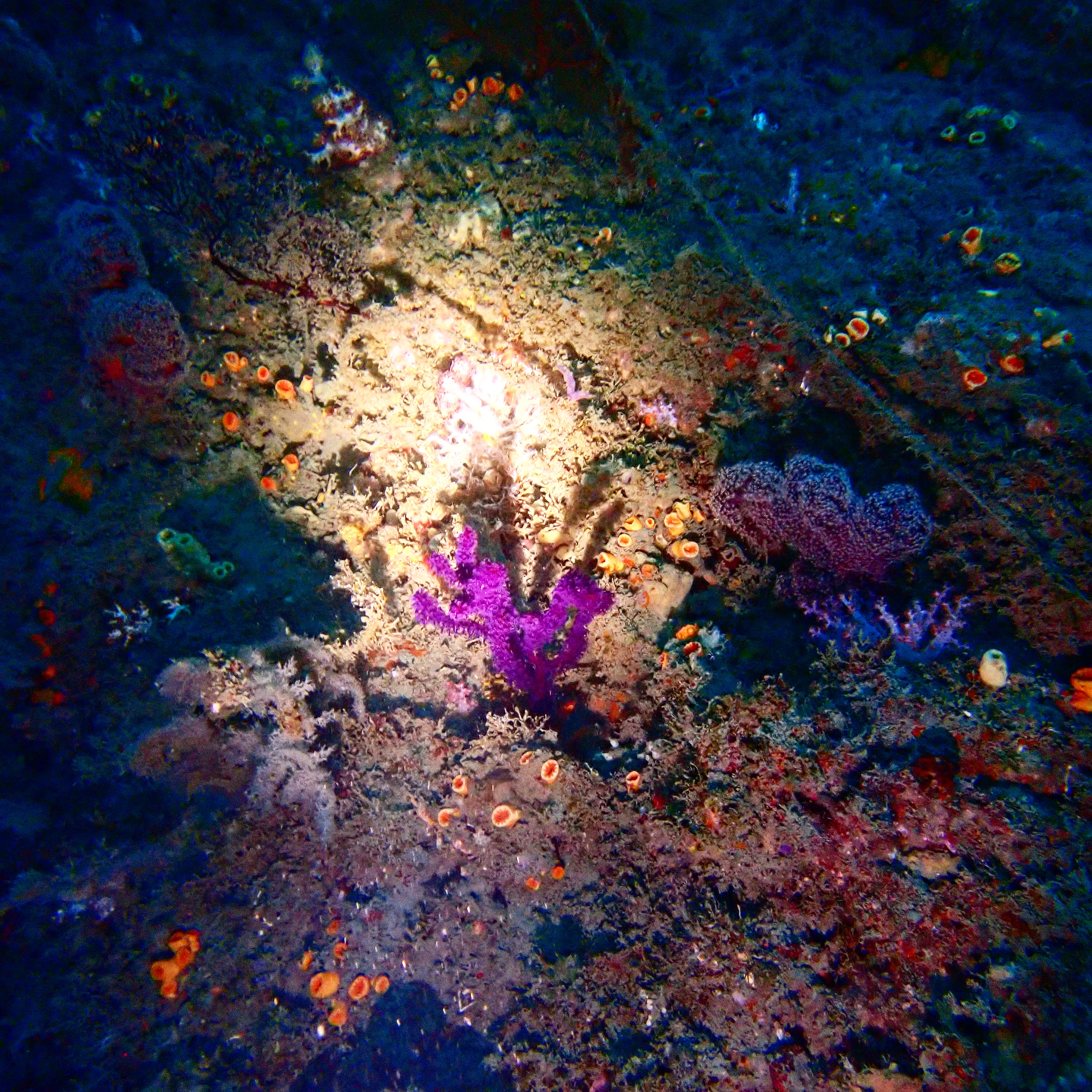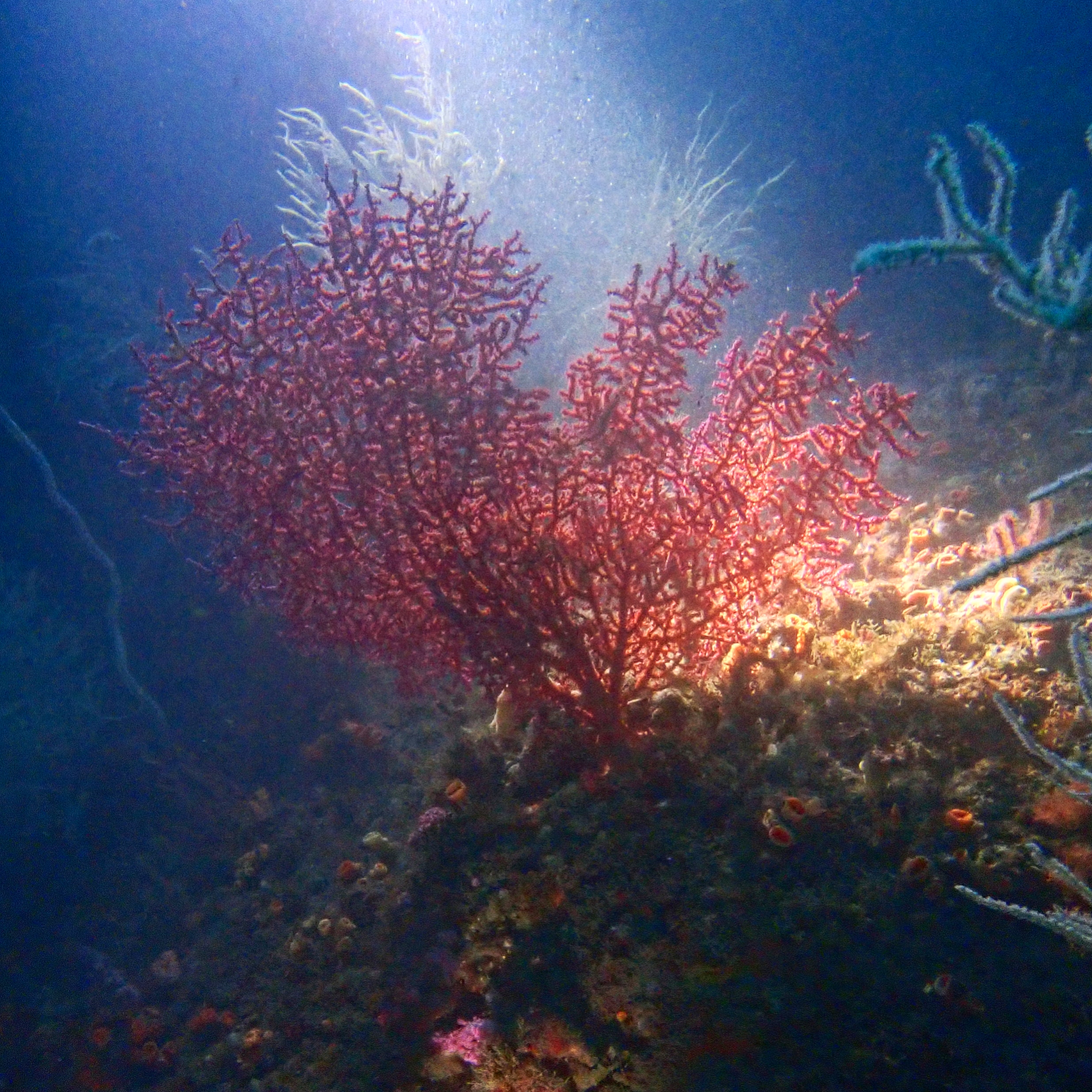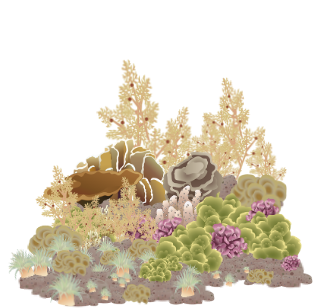Mesophotic MAFs in Northern Taiwan
Marine Animal Forests (MAFs) are ecosystems dominated by benthic suspension feeders such as scleractinian corals, gorgonians &
alcyonarians that form complex three-dimensional habitats. MAFs can be found from coastal to deep sea areas & from the equator
to the poles, making it one of the largest biomes on Earth. These ecosystems often constitute hotspots of biodiversity, nursery grounds &
support important services to human societies, such as mitigating climate effects through carbon immobilization. In recent years,
the vulnerability of some MAFs such as shallow coral reefs has risen an interest for their deeper counterparts, cornered as the Mesophotic Coral Ecosystems (MCEs).
Among MAF ecosystems, coral reefs have benefited from a disproportionally high interest but insights from gorgonians, alcyonarians, antipatharians &
poriferans-dominated forests highlight the important role they could play in maintaining planetary health. Yet, they remain largely overlooked,
especially at mesophotic depths (30 m to 150 m deep).
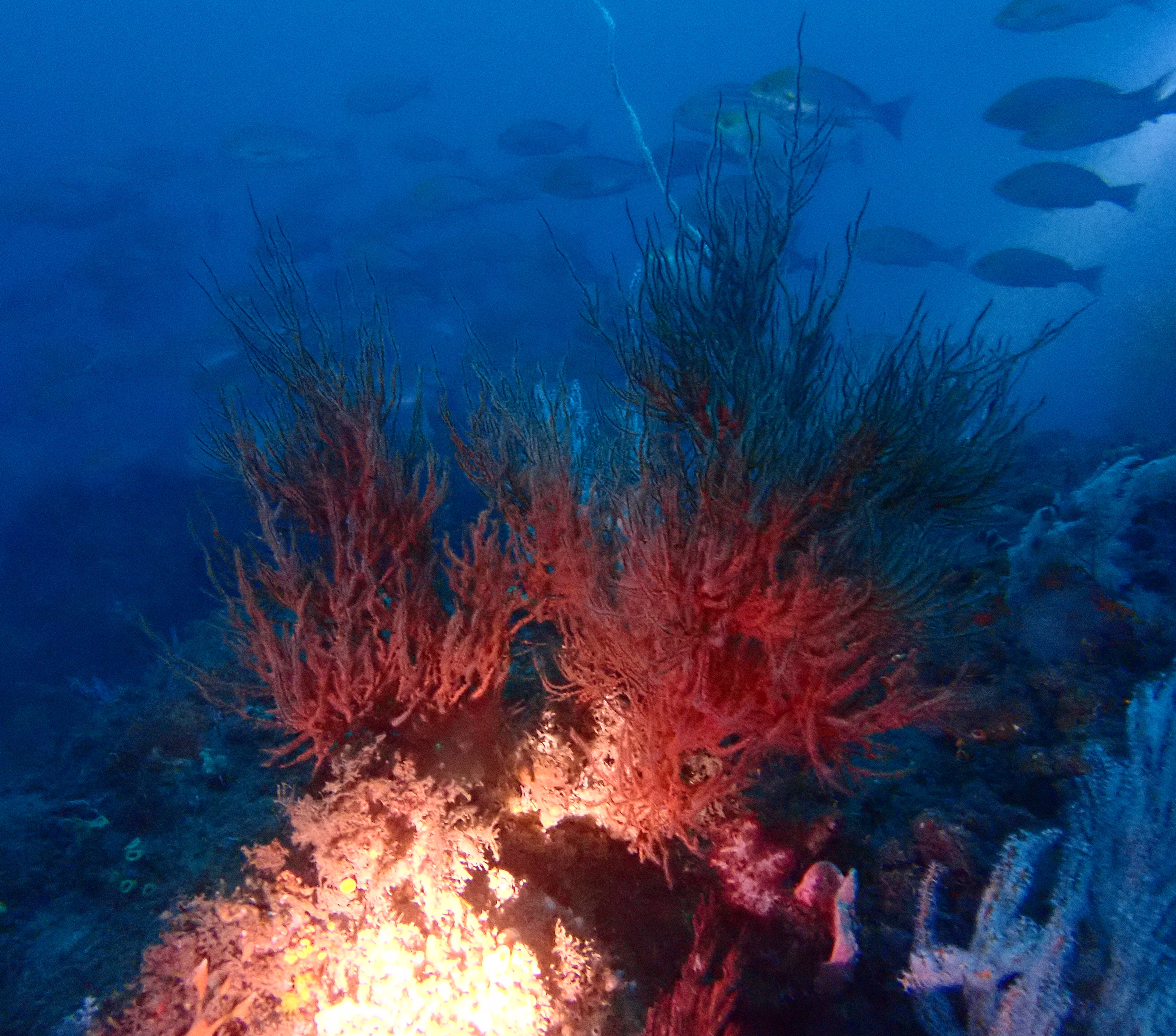
Today, technological advances in the exploration of depths (technical dives, ROVs, etc.) make Mesophotic Marine Animal Forests (MMAFs) more accessible
for scientists to fill the knowledge gap on these ecosystems. Furthermore, the development of scientific projects on MMAFs in Taiwan would align with
the objectives of the United Nations (UN) Decade of Ocean Science for Sustainable Development (2021–2030), the UN Ecosystem Restoration decade
alongside the UN Sustainable Development Goal 14 - Life Below Water as well as the European Union COST Action (CA20102) Marine Animal Forests of the World (2021-2025).
In this context, I am aiming to extend my skills toward gorgonians & mesophotic explorations, with a primary focus on describing the understudied Gorgonians forests
present in Northern Taiwan's upper mesophotic zones.
